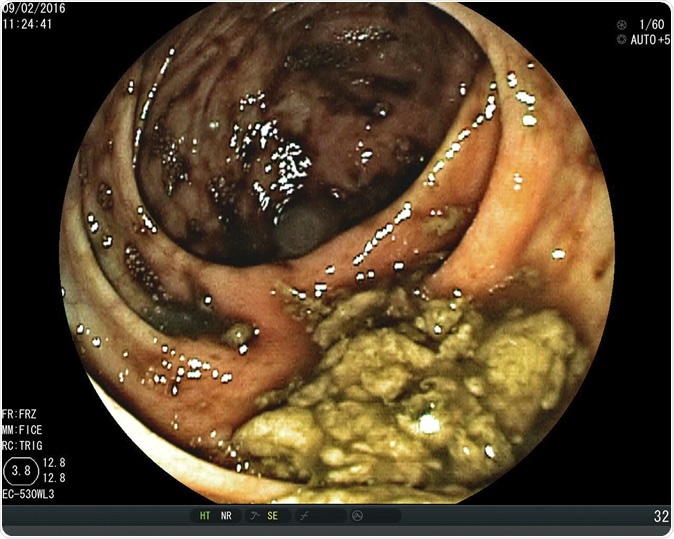According to the results of a phase III trial presented at the 2018 ASCO Annual Meeting, two simple over-the-counter medicines – high dose esomeprazole and low dose aspirin when taken regularly can moderately lessen the risk of high grade esophageal cancer in patients who are diagnosed with Barrett’s esophagus when taken for at least 7 years.

Upper Gastrointestinal Endoscopy, Esophageal cancer. Image Credit: Whitetherock Photo / Shutterstock
The results of the ASPECT trial were discussed at the meeting that showed that these two drugs can reduce the all-cause mortality. In the combination is high dose esomeprazole which is a proton pump inhibitor (PPI). It can supress the production of gastric acids. It is given here at high doses – 40mg twice a day. The other drug in the combination is aspirin in low doses.
The team compared standard-dose esomeprazole (20 mg once daily) with the high dose esomeprazole and found that the high dose provides a significant improvement in time to death due to any cause after diagnosis with esophageal cancer or high grade dysplasia after a medial follow up of 8.9 years. High dose combination showed a most effectiveness in reducing the risk of death compared to standard dose of esomeprazole alone.
The risk of esophageal cancer is high among those with Barrett’s esophagus. It develops due to long term gastroesophageal reflux disease (GERD) where the acid tends to damage the squamous mucosa lining the esophagus and when the lesions heal, the columnar cells are replaced by squamous ones. It affects around 2 percent of the population and in 80 to 90 percent cases gives rise to esophageal cancers.
According to lead author Janusz Jankowski, deputy vice chancellor of the Royal College of Surgeons in Ireland and a consultant clinical adviser at the National Institutes for Health and Care Excellence, said that the study reveals the actual effect which may seem small because of the rare incidence of these events but the impact on the patients is huge. The lifetime risk of esophageal cancer is 2 percent he said. In studies such as these the number of patients needed to treat (number needed to treat or NNT) with the medication before one case of the cancer related death can be prevented is calculated. Janusz explained that the NNT is 1 in 34 for esomeprazole high dose and 1 in 43 for low dose aspirin.
The incidence of esophageal cancer according to the National Cancer Institute’s Surveillance, Epidemiology, and End Results (SEER) Program is 1 percent of all new cancers in the United States in 2018 and the estimated rate of survival in 5 years is 19.2 percent. SEER says an estimated 17290 people will be diagnosed with this cancer this year. According to Cancer Research UK there will be 9211 new cases of this cancer this year. Jankowski said that in the last four decades there has not been much improvement in the outcome of esophageal cancers.
In this ASPECT study patients from Canada and UK were recruited since 1999. These patients had over 1 cm of Barrett’s esophagus at the beginning of the study and did not have esophageal adenocarcinoma or high grade dysplasia at the start of the study. There were 2563 patients who were given either high dose or low dose esomeprazole alone or in combination with 300 mg of aspirin or 330mg of aspirin in Canada. The patients continued the medications for 8 to 10 years. There were very few (1 percent) adverse events seen with the medications. This was an important finding because for a drug to prevent a cancer or a disease, it needs to be taken for a long period of time and that means it has to be proven safe so that the benefits are more than the risk explained Jankowski.